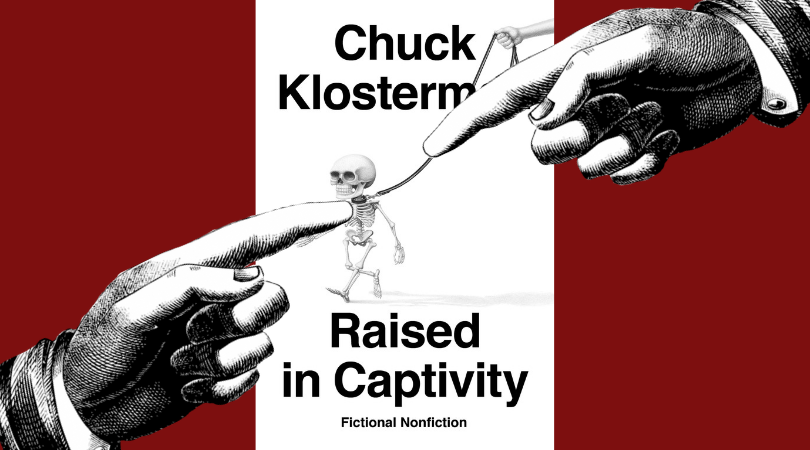
There are few things the literary community relishes more than the appearance of a polarizing high-profile book. Sure, any author about to release their baby into the wild will be hoping for unqualified praise from all corners, but what the lovers of literary criticism and book twitter aficionados amongst us are generally more interested in is seeing a title (intelligently) savaged and exalted in equal measure. It’s just more fun, dammit, and, ahem, furthermore, it tends to generate a more wide-ranging and interesting discussion around the title in question. With that in mind, welcome to a new series we’re calling Point/Counterpoint, in which we pit two wildly different reviews of the same book—one positive, one negative—against one another and let you decide which makes the stronger case.
Chuck Klosterman has a lot of opinions. He’s the bestselling author of the nonfiction books Sex, Drugs, and Cocoa Puffs; But What If We’re Wrong?; and Chuck Klosterman X. He was also a columnist for ESPN.com. You might also recognize him from his writings on baseball, Britney Spears, and everything in between in Esquire. Or perhaps you followed his New York Times Magazine‘s “The Ethicist” column.
Raised in Captivity is Chuck Klosterman’s first short story collection, a grab-bag of odd characters in weird situations told in short bursts (the longest story is around ten pages). Overall, it’s been met with positive reviews. Chris Barton of The Los Angeles Times notes, “This is the kind of strange, sharply detailed and often slyly funny examination of cultural behavior and norms he does unlike anyone else.” Angela Watercutter over at Wired calls it “delightfully unsettling.” Booklist‘s Alexander Moran describes the stories as “often with Twilight Zone– or Black Mirror-like premises, are both profoundly weird and weirdly profound.”
Today we’re looking at Nicholas Mancusi’s TIME review, which claims this collection “extends his trademark curiosity and whirring intelligence to the realm of fiction.” In the other corner, we’ve got Kamil Ahsan’s A.V. Club review, which refers to these short stories as “a series of premises pitched in a precocious TV writers’ room.”
So, dear reader, what do you think? Are you ready to foray into this fictional nonfiction?
His father had once told him that the key to life was an ability to ignore other people’s imaginary problems.
“Raised in Captivity: Fictional Nonfiction, Klosterman’s first collection of short stories, extends his trademark curiosity and whirring intelligence to the realm of fiction. The short stories here, 34 in total, are truly short, fewer than 10 pages on average. But what they may lack in development or structure, they make up for in originality and humor … Klosterman’s work is motivated by his interest in ideas or, rather, his interest in society’s interest in ideas: how we come to them, experience them and abandon them. In these short pieces, he uses largely faceless characters to test accepted realities, such as time, technology, death and football, to an extent well beyond the reach of nonfiction. The effect of these almost scrollable-length stories is at once familiar and uncanny. It feels like a replication of the fractured way we are forced, in the age of technology, to mediate reality and attempt to understand the world around us.”
–Nicholas Mancusi (TIME)
“Klosterman comes across as familiarly irreverent … while its tone may be alluring to fans, the collection is less clever, incisive short stories than it is akin to a series of premises pitched in a precocious TV writers’ room. Pilot season might do well to have Klosterman relate such jumping-off points, which is to say that the book sounds fun, but as a collection, it’s undercooked … as soon as things start to get interesting, Klosterman shuts it all down … Klosterman’s best stories are those that deal with the ethics of his premise in a more meaningful way … The only problem is that for every good story in this collection of 34, there are far too many middling ones, and more than a couple bad ones. One story in particular is almost offensive in its belief of its own cleverness … may as well be titled Nonfictional Fiction.”
–Kamil Ahsan (A.V. Club)
Still intrigued? Read an excerpt over on Lit Hub.

